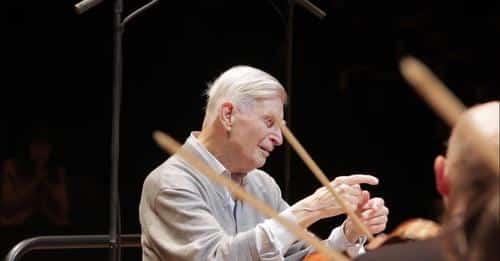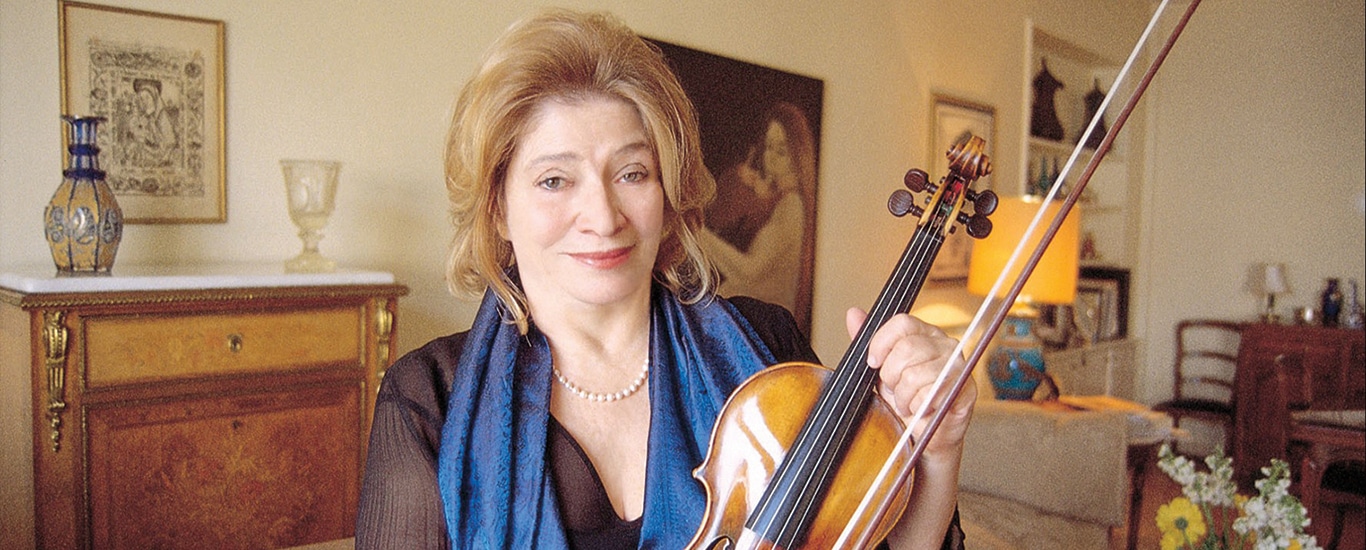Brexit: The opera fallout
mainBritish opera companies are in a state of alarm and confusion.
Most casts rely on singers from the other 27 members of the European Union. It would not be terribly challenging to get by without them.
But when someone falls sick at Covent Garden or Glyndebourne the only recourse is to fly someone in at short notice from Europe. If barriers went up again – of the process was even delayed by a few hours for visa stamping and extra-long alien queues at Heathrow – opera will be in serious trouble. Stuffed, is the word I’m hearing.
On the other side of the coin, hundreds of British singers who got their start in small German houses would no longer be able to do so.
The word ‘disaster’ was being bandied in my hearing last night. And not in jest.






Cameron has played the Russian Roulette with the future of his country. He should be ashamed !
“On the other side of the coin, hundreds of British singers who got their start in small German houses would no longer be able to do so” – well, yes they would, they’d just have to get a work permit like the rest of us non-eu singers already do.
But I hope for my colleagues’ sake that this won’t end up being necessary!
Not true.
CG and Glyndebourne have a highly-organized cover system in place forl last minute cast replacements.
German-speaking opera houses will continue to employ singers on Fest contracts from all over the world. It’s easy, the house offers the singer a contract, the singer gets a work permit. Simples.
Well, yes and no. This season, Glyndebourne have had to find an unprecedented three replacement conductors (for Meistersinger, Béatrice et Bénédict and A Midsummer Night’s Dream) and a replacement Cherubino – at very short notice; they have been German, Italian, Czech and Polish respectively. If it’s for entire runs, they would usually keep the covers as covers. If there had been visas involved, this would have slowed things down, perhaps unmanageably, and added to the expense. Disaster or not, it massively restricts the free labour market, which, when speed is of the essence, matters.
Of course, they could find those conductors and certainly those singers from the greatest pool of singing talent in any country in the world: i.e. the UK! Or is that too radical a proposal…?
When you’re talking about performing at the highest level, there isn’t enough work in the UK to keep us performing here alone, we HAVE to go abroad to earn and live. So no, it would be very difficult to find that talent in the UK alone. It’s so sad that we train the best musicians in the world, but they have to go to other countries to make a living.
Boris:
“There will still be intense and intensifying European cooperation and partnership in a huge number of fields: the arts, the sciences, the universities, and on improving the environment.
“EU citizens living in this country will have their rights fully protected, and the same goes for British citizens living in the EU.
“British people will still be able to go and work in the EU; to live; to travel; to study; to buy homes and to settle down. As the German equivalent of the CBI – the BDI – has very sensibly reminded us, there will continue to be free trade, and access to the single market.”
http://www.theguardian.com/politics/2016/jun/26/boris-johnson-breaks-silence-to-set-out-leadership-platform
Of course, it’s not in the sole power of any sitting British Prime Minister – let alone an aspirant to the office like Boris – to promise these things.
Rather reminds me of the Parti Québécois in 1995 promising that an independent Quebec would be able to keep the Canadian dollar. That was not their decision to make.
Surely the minor inconvenience of getting a work permit is outweighed by all the freedom you Brits can soon enjoy. Who know, someone might even write an opera about that.
Fidelio
Orango (heard John Oliver call Boris a “shaved orangutan” the other night).
I’m assuming that this comment was intended as a joke, but I have heard American commentators seriously suggesting that the British people will somehow be more free as a result of Brexit. The fact is that we already are free. We pool some of our sovereignty with the other member states of the EU, but this does not diminish our freedom, and the results are for the benefit of the UK and the rest of the EU. Until Friday morning this country was a great place to live. Now many of us are less sure of that.
People in the arts here in NYC where I live are generally horrified for Britain and what it must now contend with. There are probably Trump supporters who think this is all a “fantastic” thing (Trump, not understanding what Brexit is). But I suspect the majority of informed Americans see what you’re dealing with now and don’t wish to repeat similar folly here.
Heaven forbid that musicians and artists have to compete for work in an uncertain world – not like people who run businesses with all their capital on the line and who never know when they’re going to be able to sell that which they produce (despite having wages to pay).
Some people have all the bad luck!!
Musicians’ and artists’ worlds are uncertain enough without this added burden. Get real!
More scaremongering by the IDIOTS in the press.
We didn’t need visas to visit European countries pre 1975 so why would we need them once we’d left.
Because this is not about visiting, it’s about working (and living). You’ll still be able to visit the Eiffel Tower! But will you be able to pop across to Paris to play in a concert? Even supposing it’s possible, if it’s an extra bureaucratic hassle, they may just get someone else in instead.
Or let’s say that as a UK citizen you have a visa to live and study in Paris – will you be able to take on extra work (teaching, concerts) that are not specified by the terms of your visa?
Where does this totally unsubstantiated piffle originate ? There was enough rubbish put out by the Remain camp (aka Euroids) during the campaign. Surely it doesn’t need to continue ? Nothing has yet been agreed anywhere and it’ll likely be months before matters like this are decided.
Well said. The idiots in the press like the sound of their voices they don’t know when to keep their silly mouths shut.
Question for you Remainders:
How did a British recording company with singers from Sweden, Germany, Austria, USA, France, and Australia, a Hungarian conductor, and a Viennese orchestra record one of the biggest selling classical recordings of all time before the EU ever existed??
Reading the comments to this article has sickened and saddened me. So many are so out of touch with the modern classical music industry it is shocking. You have absolutely no clue how tough it is for young classical musicians today. The UK has NO interest in investing in The Arts, as savage cuts to the Arts budgets prove, despite evidence suggesting that the UK economy gets back 5 times what it invests. There is very little work in this country because of it, and certainly not enough to make a career from it. Fees in this country are appalling. It isn’t like ‘the good old days’, when there was a choral society in every town doing concerts that actually paid, and an orchestra for everyone who wanted one, and there certainly aren’t recording contracts being dished out like back in the ‘golden days’, because so little money is made from recordings now. As a young performer in this country, you HAVE to go to Europe, to have any chance of making a career, or even just paying your bills. (I am a singer – a counter-tenor, so no fancy fest contracts for me!)
There is one commentor talking about fest contracts as if they just hand them out to anyone in the street, when they are already hotly contested internationally. And the reality is that when there is uncertainty about the working rights of an individual, it will prejudice casting. And it’s not unfounded – a very well known singer friend of mine recently went to America, to a top opera house, but had trouble with her visa and had to come home after 2 weeks of rehearsal. She managed to sort out the trouble, but by then she had missed so much rehearsal, she wasn’t permitted to sing the premiere. This is a risk that opera houses cannot take lightly, and so are far more likely to choose EU singers. I have worked in Russia and America, and I can tell you that obtaining visas takes days out of your life. It is no easy matter. Visas are very strict and any work outside the stipulations of your visa is not allowed, so no extra concerts or teaching, ask any Australian or Canadian working here or in Europe. And as volatile political climates change, so too do visa rules.
The truth is, most performers live hand-to-mouth, walking a tightrope between doing the thing they have trained their whole life to do, and having to give it up to feed themselves and their families. The recession has hit our dwindling industry hard, and now this will be the nail in the coffin of many promising careers. To think otherwise is just blind stupidity.
It’s strange that nobody here seems to have any actual knowledge of what it takes to enter the UK to perform in the opera world (I am not sure how it works for classical instrumentalists)… A Certificate of Sponsorship (COS) needs to be issued by the presenting organization (ROH, Glyndebourne, ENO, WNO, etc…). This COS can be done in about 10-15 minutes and is filed online. Almost instantaneously a number is given to the performer and all he/she needs to do is to give that number to the customs officer and voilà! As much as we lament the Brexit decision and many of its dire consequences, last minute engagements for EU opera singers (and singers from other countries) will not be impossible.